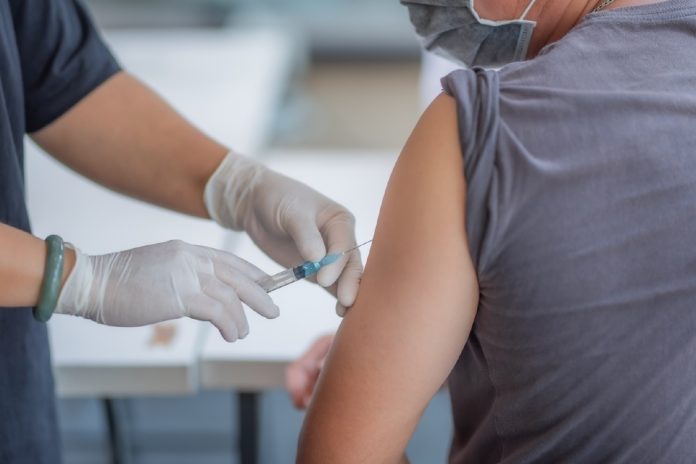The Joint Committee on Vaccination and Immunisation (JCVI) recommends that both the AstraZeneca and the Pfizer-BioNTech vaccines are safe and provide high-levels of protection against coronavirus (COVID-19) disease, including severe disease.
As protection is obtained around 2 weeks after the first vaccine dose, the committee recommends that vaccinating more people with the first dose is prioritised above offering others their second dose. This will provide the greatest public health benefits in the short term and save more lives.
The committee has reviewed the safety and efficacy data for the vaccine and advises that for those most at risk of death and serious illness from COVID-19, both the AstraZeneca and the Pfizer-BioNTech vaccines are acceptably safe and effective. High levels of protection are obtained after the first dose of vaccine.
The current evidence remains that increasing age is the single greatest risk factor. Therefore, the current recommendation is that groups continue to be vaccinated in the following order:
- Residents in a care home for older adults and their carers
- All those 80 years of age and over, and health and social care workers
- All those 75 years of age and over
- All those 70 years of age and over, and individuals deemed clinically extremely vulnerable
- All those 65 years of age and over
- Adults aged 18 to 64 years with underlying health conditions which put them at higher risk of serious disease and mortality
- All those 60 years of age and over
- All those 55 years of age and over
- All those 50 years of age and over
This initial phase of the vaccine programme is estimated to cover around 99% of preventable COVID-19 deaths.
The JCVI advises that vaccinating more people with the first dose is prioritised above offering others their second dose, to maximise benefits from the vaccination programme in the short term.
For the Pfizer-BioNTech vaccine, the second vaccine dose can be offered between 3 to 12 weeks after the first dose. For the AstraZeneca vaccine, the second dose can be offered 4 to 12 weeks after the first dose.
There are some data from the AstraZeneca vaccine trials suggesting that extending the time to the second dose may be better than having the second dose earlier.
Skipping the second dose is not advised, as the second dose may be important for longer lasting protection, however exact durations of protection are currently unknown.
Evidence from Phase 3 trials indicate high levels of protection against serious disease and death from around 2 weeks after the first dose.
Professor Wei Shen Lim, COVID-19 Chair for JCVI, said:
The JCVI has considered the safety and efficacy data on the AstraZeneca vaccine and we are pleased to say that it is acceptably safe and effective – as with the Pfizer-BioNTech vaccine.
For both vaccines, high-levels of protection are evident after the first dose of vaccine. JCVI advises priority should be given to the first dose, to maximise the public health benefits in the current situation and save more lives.
Dr Mary Ramsay, Head of Immunisations at Public Health England (PHE), said:
The recommendations from the JCVI and the Medicines and Healthcare products Regulatory Agency (MHRA) provide confidence that the AstraZeneca vaccine has met the very high standards needed to roll out the vaccine. This, alongside the Pfizer-BioNTech vaccine, is yet another big step forward in tackling the virus.
Prioritising the first dose will also help prevent as many deaths from COVID-19 as possible. Once deployed, PHE will continue working alongside the MHRA to keep the safety and efficacy of the vaccine under constant review.
The committee will publish updated advice following full consideration of Phase 3 safety and efficacy data on COVID-19 vaccines.







